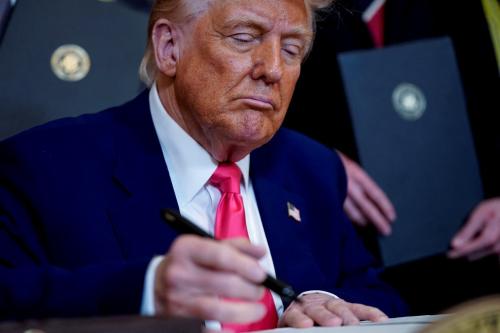Attempts to build the the Keystone XL pipeline from Canada’s oil sands to the U.S. Gulf Coast have been abandoned after more than a decade of opposition from environmentalists, dropping oil prices, and the Biden administration’s drive to decarbonize the U.S. economy. Samantha Gross explains the implications of Keystone’s cancelation for other pipeline projects, U.S. emissions, and the future of fossil fuel infrastructure.
Related material:
- Brookings experts comment on Biden’s climate summit
- Podcast: Why we still use fossil fuels
- Barriers to achieving US climate goals are more political than technical
Listen to Brookings podcasts here, on Apple or on Google podcasts, send email feedback to [email protected], and follow us at @policypodcasts on Twitter.
Thanks to audio producer Gaston Reboredo, Chris McKenna, Fred Dews, Marie Wilken, and Camilo Ramirez for their support.
The Brookings Institution is committed to quality, independence, and impact.
We are supported by a diverse array of funders. In line with our values and policies, each Brookings publication represents the sole views of its author(s).







Commentary
PodcastWhat does the end of the Keystone pipeline mean for US energy?
June 11, 2021
Listen on
The Current Podcast